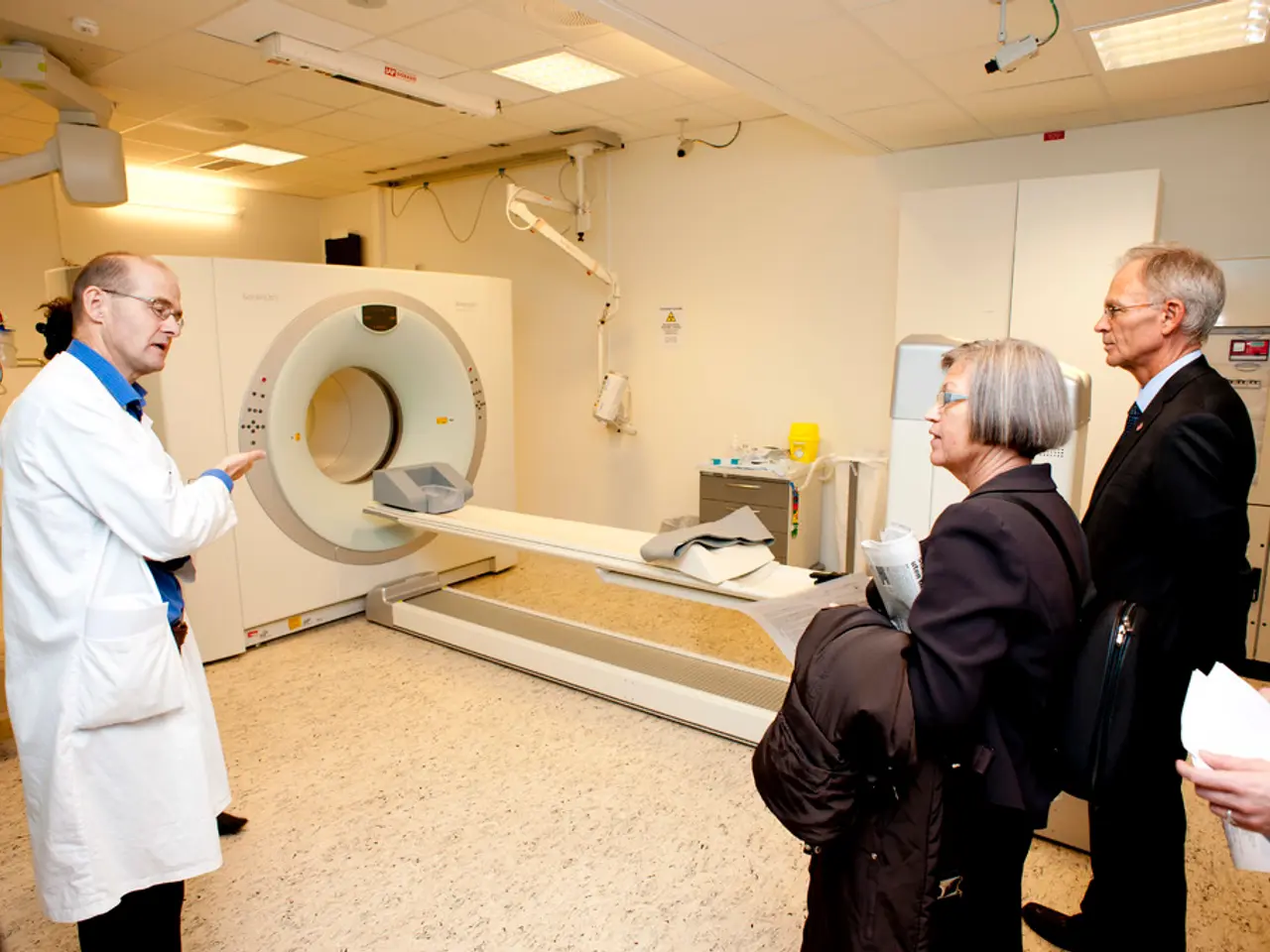Encouraging specialized medical consultations with motivational rewards?
In a significant move towards reforming Germany's healthcare system, Federal Health Minister Nina Warken and her coalition are considering the introduction of a mandatory system where patients would primarily visit a general practitioner (GP) for referral to specialists. However, the implementation of this system is not imminent, as Warken acknowledges the need for careful planning and gradual transition.
The German Association of General Practitioners (AöR) supports this initiative, recognising the importance of further digitalization and a greater role for pharmacies in the healthcare system. Markus Beier, co-chair of the AöR, notes that demographic changes are already noticeable in practices, with older individuals having more chronic illnesses, requiring more medication coordination, and more doctor's appointments.
Eugen Brysch, board member of the German Foundation for Patient Protection, emphasizes the necessity of addressing these issues before implementing a mandatory first-visit-to-a-GP rule. He raises concerns about the current shortage of GPs, pharmacies with medical services, and functional digitalization nationwide.
Warken is questioning the possibility of paying a fee for direct access to a specialist, or receiving a bonus if going through a GP first. She stresses the need to ensure GPs do not become a bottleneck in the system and encourages people to visit doctors.
Nicola Buhlinger-Goepfarth, co-chair of the AöR, suggests that existing GP programs with health insurance companies could serve as a model. She believes that elderly, chronically ill patients could particularly benefit from this model, as it guarantees a specified timeframe for specialist appointments through GPs.
However, there is notable resistance from patient advocacy groups against reintroducing fees for medical visits, considering it an additional burden on vulnerable populations. The medical associations advocate for clear legal regulations to prevent missed appointments rather than financial incentives to prioritize visits.
If a specialist appointment cannot be made within the guaranteed timeframe at a practice, patients should have the option to be treated by a specialist or in a hospital, according to the proposed system. The coalition of Union and SPD aims to introduce this mandatory system, with Warken considering financial incentives to facilitate more targeted access to specialist appointments.
In conclusion, the proposed changes aim to improve the efficiency and accessibility of Germany's healthcare system. While the details of the financial incentives are still under discussion, the focus remains on ensuring a smooth transition, addressing existing shortages, and improving digitalization to provide better healthcare for all.
Read also:
- Inadequate supply of accessible housing overlooks London's disabled community
- Strange discovery in EU: Rabbits found with unusual appendages resembling tentacles on their heads
- Duration of a Travelling Blood Clot: Time Scale Explained
- Fainting versus Seizures: Overlaps, Distinctions, and Proper Responses






